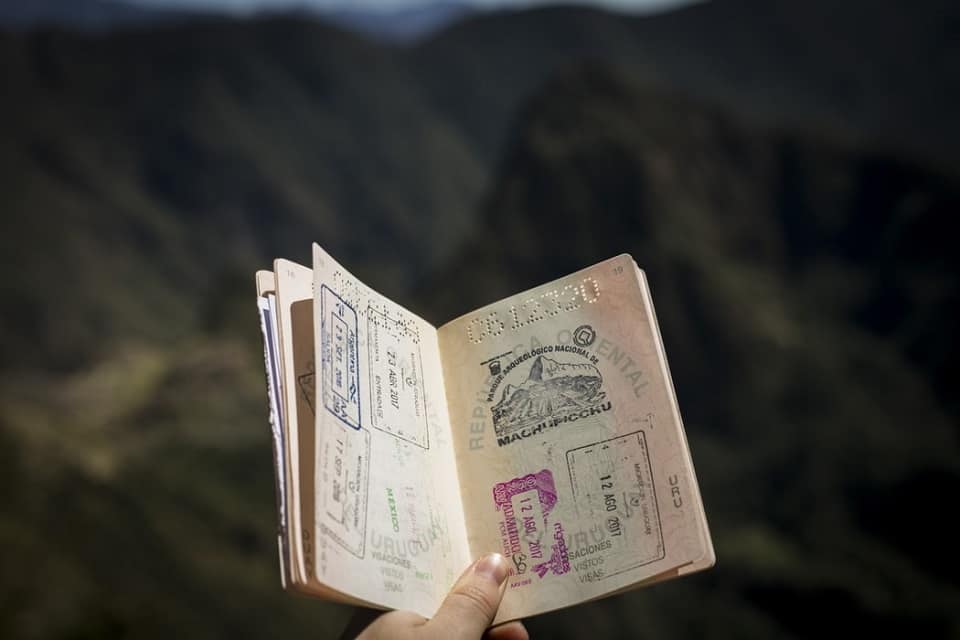Nearly every digital nomad with remote work wants to travel outside of their own nation’s borders at some point but is it legal to do so? What kind of visa do you need if you want to do remote work in another country? What do employers expect from you?
OK, the simple answer is this: unless you have the legal right to work in a country (through citizenship or by treaty), you really ought to get a visa which gives you the right to work and possibly a work permit too if you want to work remotely. However, there’s more to this than meets the eye.

Table of Contents
First Things First – There Is No “Grey Area”
The biggest and worst lie of the digital nomad universe goes like this:
When visa regulations were designed, they were meant for people with regular jobs. Work permits and work visas are therefore for people with a job that might take employment away from a local person and therefore this is a “grey area” for remote workers, digital nomads, freelancers, etc. who aren’t going to take a job away from a local.
This is horseshit.
It is true that most visa frameworks were designed for the pre-internet age.
It is true that they are designed, mainly, to stop illegal immigrants from poaching jobs.
What’s not true is that there’s “a grey area” for online workers.
The rules are always clear – if you work without the right to do so, you’re breaking the law. No exceptions, grey areas, or other gaps to squeak though.
When you point this out, the herd of fools will cry, “But what about businesspeople on vacation? Surely answering one e-mail isn’t illegal? Therefore, it must be OK to work online!”
Which is a great way to build a completely false equivalence and once again, their assumption is wrong – it is illegal in most countries to do any kind of work on a tourist visa, yes, technically speaking – sending a single business e-mail or taking a business call is breaking the law.
What Is True About Working Online In Another Country?

Well, the big truth is this – most countries do not police your accommodation. As long as you have a legal visa to stay in the country, you can rent somewhere to live and then you can work in it.
It’s not “legal” to work without the right visa, but it is probably ethically acceptable and while nobody else knows you are doing it – you’re not going to get arrested or charged.
In addition to this, no country has (yet) started raiding co-working spaces looking for illegal scamps working from them. This could change at any moment and in one hilarious incident in Chiang Mai, Thai immigration did raid a co-working space, they arrested everyone and then decided they couldn’t be bothered to charge anyone with a crime.
In fact, after this incident, Chiang Mai immigration indicated that they don’t give a toss about digital nomads. Leading some nomads to assume that this constitutes “official Thai policy”. It doesn’t.
They can decide tomorrow morning that you’re an illegal immigrant, they don’t have to tell you about it and when they arrest you – they can charge you for working without a permit. We just don’t think that this will happen.
For this reason, we are cautious about co-working though regular readers will know, we don’t like co-working spaces very much anyway.
Similarly cafes are a small risk (In fact, the only time I have been arrested in my life was an immigration crackdown on Starbucks in Shenzhen, China – but that was for failing to register with the police and not for working) but again, they don’t present a serious danger – immigration raids on cafes are a rarity, not a regular occurrence.
What Implications Does This Have?
Well, the biggest issue seems not to be with digital nomads who are, mainly, quite happy to work from anywhere and worry about any consequences later.
It’s employers that are having problems with the whole routine. They worry that if you are caught working illegally in Myanmar, for example, that somehow, they will be held legally liable for this. Though how an employer with no presence in Myanmar would actually be held legally accountable is clearly a question for another day.
This leads to a lot of remote work contracts insisting that you stay in your own country or countries where you are legally allowed to work (they may also require you to prove this before allowing you to travel).
This is, of course, a stupid thing to do. It reduces the talent pool for employers and shackles employees. The right way to approach this is to issue a freelance contract rather than a remote work contract.
The employee then becomes their own employer. If they do get caught gallivanting around somewhere and working illegally, it becomes their problem too.
Do People Get Caught Working Remotely While Illegally In A Country?
Yes, they do but… the only tales we’ve encountered of digital nomads getting arrested for working illegally involve considerable amounts of stupidity on the part of the digital nomads themselves.
Here are some tips to avoid getting caught:
- Don’t brag about working illegally to your neighbors whether they are local or expatriate. Nobody loves a snitch but snitches are everywhere. Brush off questions about your work.
- Don’t rent a house and use it as an office shared between 20 other digital nomads. Yes, it will save you money, it will also save you money on housing and food when the police raid it and cart you off to jail. There’s nothing that says “illegal immigrant” better than a houseful of white guys all of whom arrive at 9 and go home at 6 anywhere in Asia.
- Don’t tell the immigration officer when you arrive that you’re a digital nomad. For now, they seem to be shrugging this mistake off but who knows for how much longer? Many countries are trying to crack down on digital nomads because, quite rightly, the see the whole “travel anywhere” thing as a good excuse to avoid paying taxes anywhere.
They may also be caught by their employer if they sneak off to another country; tell-tale signs include:
- Falling asleep in meetings. Time zone differences can wreak havoc on your mental and physical health.
- Logging in from the wrong IP. Lots of people get caught by their IT departments thanks to this schoolboy error.
- Outing themselves on Facebook. Sipping tequilas on the beach with your laptop on your belly may be what you’ve always wanted to share with the world but when your colleagues think you’re at home… big mistake.
While theoretically, a remote employer might sue a remote employee, who breaks their contract and goes overseas to work illegally, the reality tends to be that you get fired instead. It’s still not a happy ending to your digital nomad journey.
It’s best to either get permission to travel overseas from a remote employer or to find another job.
Can You Get A Legal Working Visa As A Digital Nomad?

Many countries offer schemes that approximate a work visa or some kind of residency visa (which may not give you the right to work but should obscure you from the prying eyes of immigration trying to catch tourists who work).
Germany, for example, offers a freelancing visa scheme to foreigners as does the Netherlands. Thailand offers both an Elite Visa (expensive but which gives you government contacts and a near guarantee of being left alone by immigration) and a working visa program through companies like Iglu. However, these schemes all involve either paying large sums for visas or in local taxes.
The trouble is that many remote workers pay taxes at home and many other digital nomads are trying to avoid taxes or have no money for a visa.
It’s not that it’s impossible to do remote work legally in other countries; it’s that it often costs too much to be an attractive option.
Will There Be A Remote Work/Digital Nomad Visas?
In our opinion, the answer to this is a resounding “no”. We explain in detail why not in this article called: Digital Nomad Visas? Why They’re Not Going To Happen And Why Most Nomads Wouldn’t Want Them To
In a nutshell – it’s because there’s no actual need for them, there are plenty of ways to immigrate legally, it’s just that they all cost money, no government is going to give you a pass on paying taxes or big fees, it makes no sense to them (and they’re the only ones who matter when it comes to visas).
Conclusion
If you want to work remotely in other countries legally, then you need to have the right to work or pay for the right to work. Sadly, this isn’t always cost-effective or even possible.
The alternative is to travel and then work remotely illegally, this is a low-risk proposition and the path that most digital nomads follow.
Please remember, however, there is no “grey area” either you are working somewhere legally, or you are not. And when you offer “grey area” as your defense in court, they will laugh at you before fining and/or jailing and/or deporting you. So, if you do go the illegal route – try not to draw attention to yourself.
